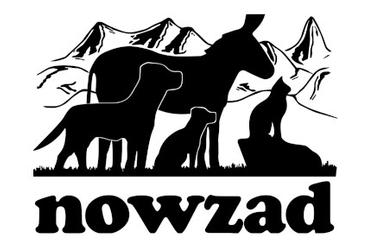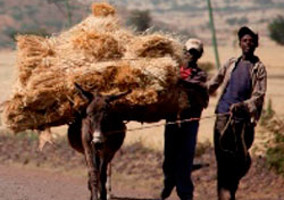For a short period last month, Nowzad was the most talked-about charity in the country.
Against a backdrop of international tragedy, staff and celebrity backers of this small Afghanistan-based animal shelter were on Sky News and the BBC almost every day. Social media overheated with demands that the government evacuate the charity from danger. Ministers tweeted out policy developments affecting the charity in the early hours of the morning.
It was an extraordinary couple of weeks, which told us plenty about charity campaigning and how charities are seen by the public and by politicians. Now the dust has settled, here are some things we learned along the way.
1. Nowzad had a great story to tell
The Taliban returned to power in Afghanistan in a sudden rush, as US and British troops readied to withdraw from the country after two decades. Suddenly, TV screens were full of pictures of terrified Afghan civilians cramming towards Kabul’s main airport and even clinging onto the sides of departing planes in a bid to escape.
Confronted with a complex tragedy, thousands of miles away and 20 years in the making, editors and reporters needed a way to explain what on earth was going on. Nowzad’s story offered a neat way to understand what was at stake.
Here was a Paul ‘Pen’ Farthing, a former royal marine who had already put his life at risk as a soldier in Afghanistan and had stayed on to run a charity.
Here was the charity: an animal shelter for hundreds of dogs, cats and sundry other creatures who, instead of being abandoned on the streets of Kabul, were getting expert veterinary care.
Here was the argument aired on TV and online in a constant loop: the Taliban was marching back into town yet, despite dedicating his life to protecting the UK and then vulnerable animals, no one in the British government was willing to help Farthing.
And here was the cliff-hanger: Would the government step up and save him, his staff and his animals?
It is serious stuff but also a reminder of the oldest comms rule in the world. If you want people to listen, know how to tell a great story.
2. Animal charities are very, very popular
Brits love animals. We always have. We are famous for it. When it came to capturing the nation’s attention, Nowzad had an advantage.
It is an animal shelter, named after a stray dog adopted by Farthing during a military tour. The notion that an animal charity would place huge importance on the safety of animals shouldn’t come as a shock, and neither should the idea that the British public agrees that animals are important.
One of the best bits of data on this comes from the think tank NPC: the Donkey Sanctuary receives more in donations every year than all the main domestic violence charities added together. This would be unthinkable in a country which didn’t have a deep, sentimental attachment to animals.
We might think this is morally wrong (and there is more on the morality of the evacuation below), but it doesn’t change the facts. Nowzad was talking about protecting animals to an audience which goes giddy about protecting animals. This helps explain why its message resonated so swiftly.
3. The campaign didn’t help refugees
Nowzad wanted the government to save Farthing, his staff and his animals. In dry maths, they achieved two-thirds of their aims. But this bit of the story turns pretty grim in a hurry.
Farthing was airlifted out of Kabul about a fortnight after the media (including this website) first featured his plight. He flew on a philanthropist-funded, privately-chartered cargo plane, which also took around 200 dogs and cats from Nowzad’s shelter.
But his staff was left behind – several dozen of his colleagues were turned away from entering the airport by Taliban checkpoints and remain in Kabul to this day. (Farthing says he is working to get them out).
No other refugees were on the chartered plane either. This has commanded relatively little attention but is a horrifying detail in the whole story.
Farthing and his supporters repeatedly said that the cargo plane would be used to evacuate Afghans. The animals could go into the hold where people could not travel, they said, with space for refugees in the seats above. This was a key plank of the argument that this was a humanitarian mission, not a plane swooping in to help one man and his animals.
In the end, though, that is exactly what it was. Farthing’s plane left with just him and the animals. All those extra seats – the ones we were told would be available to refugees – were empty.
It is fair enough to say this was beyond his control, but that begs the question of why he promised to help refugees in the first place. Why did he pledge to do something when he did not know whether it was possible?
Given the scale of the challenge it is understandable that Farthing would want to help as many people as possible, and thus offer up the extra space on the plane to people in need.
But that promise was also a useful negotiating point in his very public row with the government. Desperate people became pawns in a public relations fight – and ultimately they got left behind amid the bombs and the chaos.
4. Political influence matters
Angry at suggestions that Carrie Johnson – the prime minister’s wife – had intervened on his behalf, Farthing tweeted incredulously: “What circles do people think I move in??”
This is disingenuous. He did have access to political big hitters. We know this because everyone has now heard the sweary threats Farthing left on the answerphone of a special advisor at the Ministry of Defence. The swearing makes for a great story, but more interesting is the fact he could call up a spad at all. This political access simply isn’t generally available to small voluntary bodies.
Compare with small global development charities, for example. Thousands of small aid charities – like Nowzad working in the most dangerous and desperate parts of the world, like Nowzad with staff overseas at risk – saw billions in government funding cancelled or delayed earlier in the year. But there was no spad on speed-dial for them, no late-night twitter threads from ministers addressing their individual fates.
Those charities had their plans upended by email. “Instead of sending us the final contract, we were told it had been cancelled,” as one leader put it. Small charities don't get to discuss their options with Whitehall bigwigs.
Nowzad reminded us of the value of compelling stories and the pace with which social media campaigning can join with old-fashioned political lobbying to force change. But this isn’t a simple good news story.
The charity was also caught up in broken promises and noisy threats. Political progress saved the lives of hundreds of animals – but, as so often, making progress was a grubby business.
Related news












